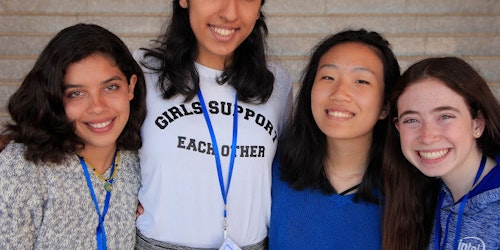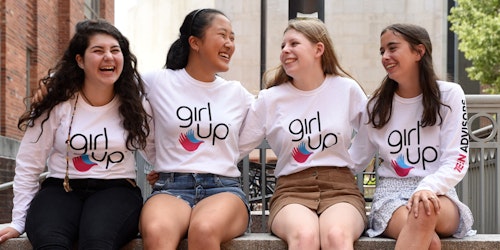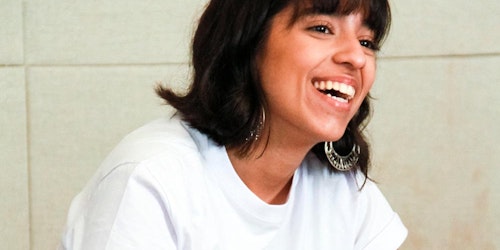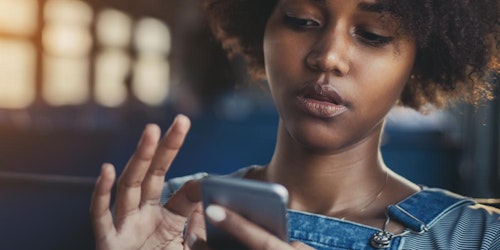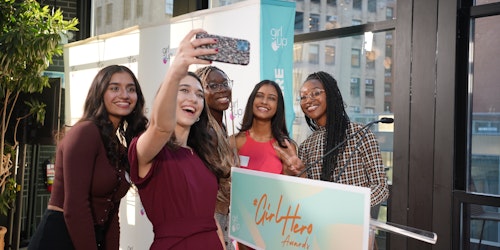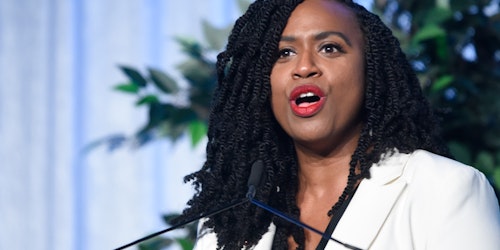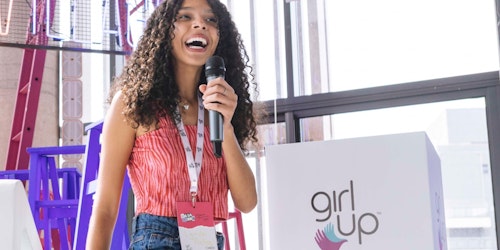Girl Up leaders took the stage at the Economic and Social Council (ECOSOC) Youth Forum, an annual initiative of the President of the Council. It has evolved into a key platform where young people can contribute to policy discussions at the United Nations through their collective ideas, solutions and innovations. Girl Up Leader Selin, from Turkey, shares the importance of a multi-pronged approach to ending child marriage in her home country, highlighting the mental health crisis that has been worsened by COVID-19, and calls on governments to do more to include youth in the decision-making process, rather than symbolically considering their needs.
What kind of advocacy and action is needed regionally and nationally to ensure the right commitments are made for adolescent well-being and implemented? What can young people themselves do to drive action?
For adolescent girls, the onset of puberty brings additional threats. Poverty and discriminatory cultural norms can restrict girls’ life choices and exclude them from educational, social, and economic opportunities. Each year, an estimated 23 million adolescent girls become pregnant. Maternal mortality – in many cases linked to child marriage – is a leading cause of death for girls aged 15–19. Female genital mutilation can also cause life-threatening health complications.
Many girls in Turkey – especially those from vulnerable groups or low socio-economic status – continue to face pressure to fill traditional gender roles, and are at particular risk of entering into child, early, or forced marriage.
The legal age of marriage in Turkey is 18 and children can marry at the age of 17 with the consent of their parents or legal guardians. Children at the age of 16 can also marry, with special permission from the courts ‘under exceptional circumstances and on vital grounds’.
Despite the rising average age of marriage, child marriage remains an ongoing challenge in Turkey and reflects a pattern of gender inequality that reinforces stereotypical roles for girls and curtails their education, compromises their health, and exposes them to the risk of violence and poverty.
I know you are hearing this a lot but we have to take action. Change is needed. Therefore, I would like to present you a good practice of UNICEF and their work in Turkey to combat and respond to child marriage:
UNICEF has a partnership with the Ministry of Family, Labour and Social Services at the central level and implements ‘child marriage prevention and response model’ in Gaziantep and Kilis, intending to expand it to other provinces, targeting refugees and local communities. The model includes key interventions to effectively prevent and respond to child marriage, such as:
- identifying leading factors of child marriage;
- identifying barriers to the elimination of child marriage;
- developing mechanisms for the identification and management of cases of child marriage;
- mapping of available services across the continuum of care and;
- increasing the local service providers’ capacities to prevent and respond to child marriage.
Through this practice:
Comprehensive training programs were developed and community-based trainings to positive social norm changes were conducted.
The “UN Joint Programme on the Elimination of Child, Early and Forced Marriage (CEFM)” was initiated under the leadership of UNICEF with the interventions of other UN agencies. This program takes a multi-sectoral approach to the challenge of eliminating child marriage.
I believe these kinds of practices and implementations may be the key answer regarding advocacy and taking action.
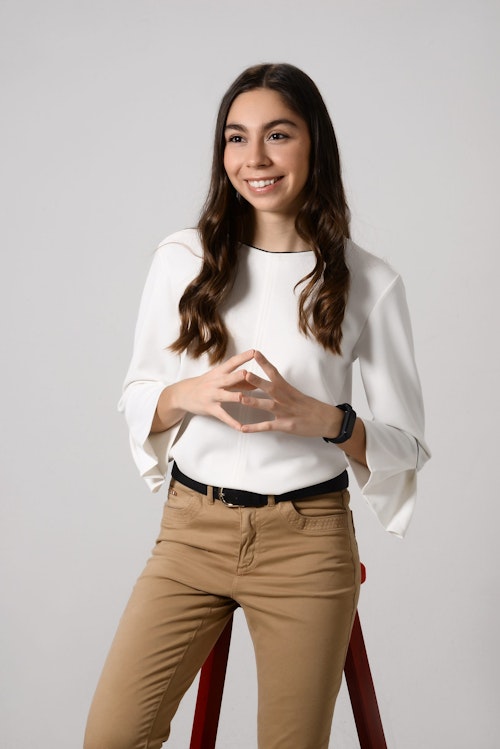
We heard on policies and programs to promote adolescent wellbeing governments are working on. How do you see adolescents and youth could facilitate governments’ efforts to work in line with the adolescent well-being framework and address all 5 domains to bring about the change we are looking for?
To answer this question, I would like to look at the bigger picture and give concrete action plans to ensure the substantive and meaningful participation of adolescent girls in every framework we prepare, in every step we take.
First of all, promoting and guaranteeing the involvement of children and adolescents in a real rather than symbolic way is very important. We need to recognize children and adolescents under 18 years as subjects of rights and not only as ‘objects of protection’. Therefore, they must be active subjects in frameworks governments and organizations that are preparing. This means that communications and calls are addressed directly to the organizations led by girls, adolescents, and youths that have an impact at the local, regional or international level.
Youth certainly can act as a linking bridge; however, it is important to underline that each of these groups have their own voice and decisions.
As contributors to the Young Feminist Manifesto, we demand that children’s and adolescents’ participation in these spaces is guided by an intersectional perspective. The process of preparing the frameworks and action plans for governments and organizations must ensure the engagement of those who have coped with these problems and experienced them so that the officials can take action realistically.
Governments cannot keep trying to come up with frameworks for adolescent girls’ well-being in a bureaucratic manner. If we really want to ensure that we are not leaving anyone behind, we have to take into consideration that each individual has different realities, different experiences and needs Unfortunately, in many cases, ensuring diversity and inclusion seems as a burden for government officials or institutions, tokenism is a whole another problem, but at the end of the day, isn’t our differences what makes each of us unique?
Every voice matters and it is governments’ and organizations’ responsibility to ensure that. We are holding you accountable.
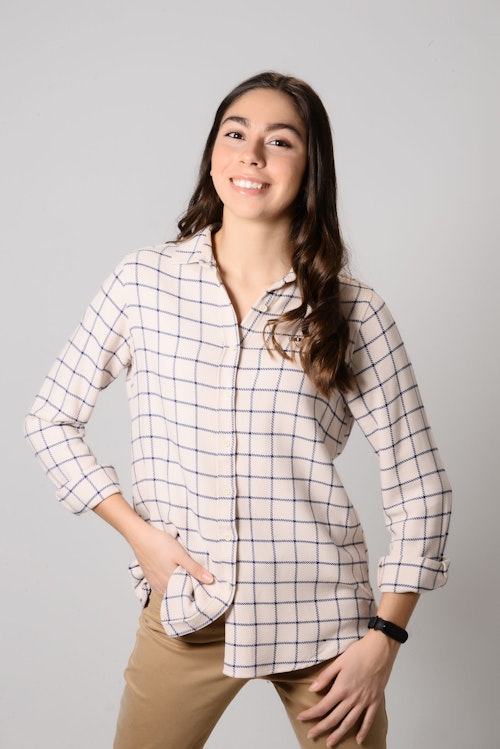
You heard the deputy minister and the State Secretary reflected on the challenges being faced by adolescents in their respective countries. What are your words of advice, or potential missing pieces of the puzzle that you would highlight?
Maybe not a missing piece of puzzle but as an adolescent girl from Turkey, I strongly believe that unfortunately our mental health is not being prioritized or being taken into consideration by the governments, at all. Mental health disorders in adolescent girls are a significant problem, relatively common. According to ACOG, at least one in five youth aged 9–17 years currently has a diagnosable mental health disorder that causes some degree of impairment. The most common mental illnesses in adolescents are anxiety, mood, attention, and behavior disorders.
Suicide is the second leading cause of death in young people aged 15–24 years, with a rate of 13.9 deaths by suicide in this population per day but despite these data, the needed actions are still not being taken. Especially with the COVID 19 pandemic, young adults have experienced several consequences, from closures of schools to loss of income, that may contribute to poor mental health. According to new research, during the pandemic, a larger than average share of young adults has reported symptoms of anxiety and/or depressive disorder. Compared to all adults, young adults are more likely to report substance use and suicide. Before the pandemic, young adults were already at high risk of poor mental health and substance use disorder, though many did not receive treatment. With the pandemic, the percentage continues to rise. Therefore, I believe highlighting the importance of mental disorders is crucial.
Especially, governments and schools should take action, fund, create concrete plans and implement them on mental health and awareness of mental health diseases so that adolescents who are facing can be detected and necessary treatments can be provided.
Linked to the Call to Action and Wellbeing Framework, what main priorities would you like to see included for adolescents in these important meetings such as HLPF and Global Summit on Adolescent Wellbeing?
First of all, like in many topics including adolescent girls, strengthening political commitment and funding is crucial. I would also like to see safe platforms on a national level to empower adolescent girls. A platform that adolescent girls can gain confidence to demand their rights and hold governments, institutions accountable. Having adolescent girls on the forefront benefits us all.
